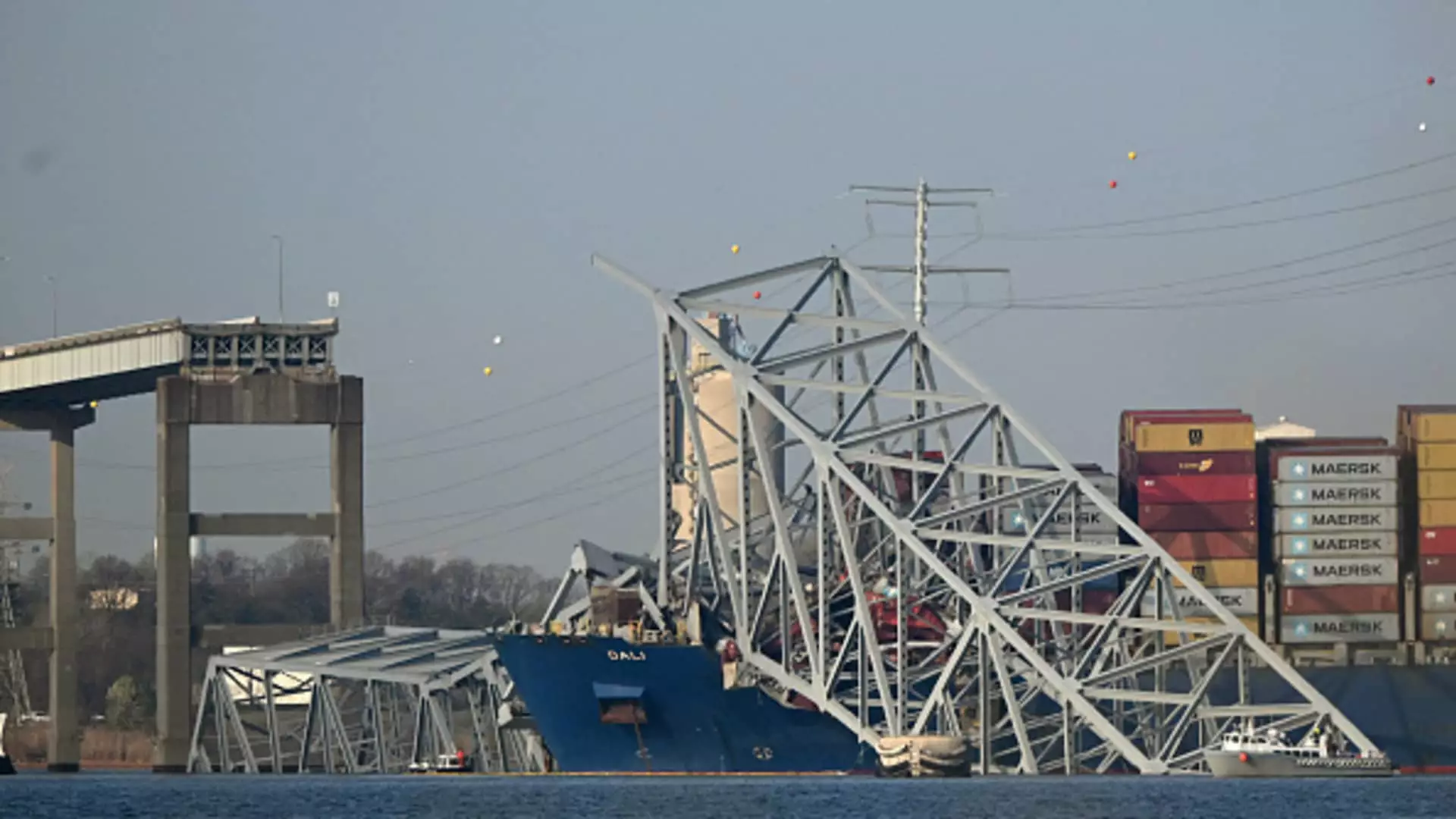The recent collapse of Baltimore’s Francis Scott Key Bridge has had far-reaching implications that extend beyond the city and state of Maryland. This tragic event is being described as a national economic catastrophe by Maryland Governor Wes Moore. The bridge collapse has disrupted a key shipping route that serves as a primary access point for the Port of Baltimore, one of the busiest and most active ports in the nation.
U.S. Transportation Secretary Pete Buttigieg echoed Governor Moore’s sentiments, emphasizing the importance of restoring the port’s operations as quickly as possible. The blocked channel not only impacts the people and workers of Baltimore but also affects national supply chains. Buttigieg emphasized the need for urgent action to reopen the channel and resume normal port activities.
The bridge collapse occurred after a large cargo ship crashed into it, resulting in the loss of two construction workers and leaving four others missing and presumed dead. The painstaking recovery operation involves removing the ship, clearing debris, and reopening the channel. Despite efforts with a 1,000-ton-capacity lift crane and a 600-ton crane, there is no definitive timeline for completing the salvage work. Both federal and local officials acknowledge that this recovery process will be complex and time-consuming.
The Port of Baltimore is a crucial hub for trade and commerce, handling a record 1.1 million containers of cargo in 2023. It ranked as the ninth-busiest port in the nation based on U.S. trade volume and led in processing shipments of cars and light trucks for the 13th consecutive year. Baltimore Mayor Brandon Scott highlighted the port’s significance, stating that it impacts not only urban areas but also rural communities across the country.
Beyond the port’s operational disruptions, the collapse has had a ripple effect on local businesses and workers. More than 15,000 individuals are directly employed by the port, with thousands more whose livelihoods are tied to its activities. The Small Business Administration has stepped in to offer low-interest, long-term loans to small businesses in the Mid-Atlantic region affected by the bridge collapse. Additionally, the federal government has allocated funding to clear the wreckage and cover the costs of rebuilding the bridge.
While President Joe Biden has pledged federal support for the bridge’s reconstruction, there has been some political controversy surrounding the funding. Lawmakers have expressed differing views on whether federal funds should cover the entire cost of rebuilding the bridge. Despite these challenges, Secretary Buttigieg remains optimistic that bipartisan cooperation will prevail in securing the necessary funding for the bridge’s reconstruction.
The collapse of Baltimore’s Francis Scott Key Bridge has not only posed significant challenges for the city of Baltimore but has also reverberated across the U.S. economy. Restoring the port’s operations and rebuilding the bridge will require a coordinated and sustained effort from both government agencies and private stakeholders. The impact of this tragedy serves as a stark reminder of the interconnectedness of our nation’s infrastructure and the critical role it plays in supporting economic growth and prosperity.


Leave a Reply